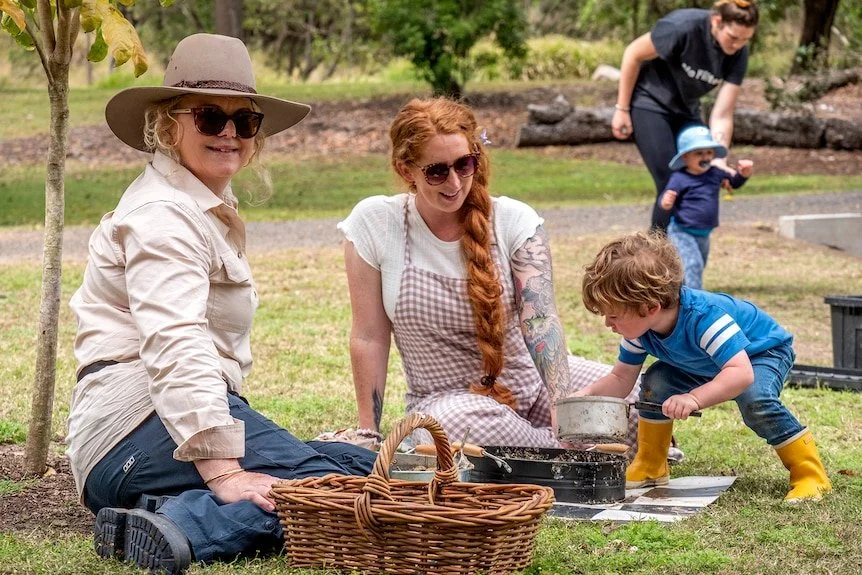What Would a Wild Childhood Look Like in 2040?
It’s 2040.
What does childhood look like?
Are children free to roam barefoot through the bush, building cubbies and stories in the trees?
Or are they still behind screens, inside boxes, learning to conform before they’ve even had a chance to climb?
Right now, we are standing at a fork in the path — one that leads to a future full of connection, confidence, and curiosity… or a future where childhood has been outsourced, scheduled, and sanitised beyond recognition.
As a play advocate, educator, and parent, I ask this question every day:
What kind of world are we building for our children?
And more importantly… what can we do right now to change its course?
Where We’re Heading (If We’re Not Careful)
The truth is — we’re already seeing the consequences of a world where play has been pushed aside.
Children falling out of chairs because their core strength hasn’t developed.
More kids in therapy. More kids on medication.
Increased anxiety, sensory issues, and behavioural struggles.
A generation disconnected from nature, from risk, from freedom.
Why? Because we’ve traded mud for worksheets. Movement for management. Imagination for instruction.
We’ve taken away the very things that children need — freedom, risk, boredom, nature, autonomy, and unstructured time.
If nothing changes, by 2040, we may have a society that’s more advanced in tech, but less connected to itself. More productive, but less peaceful. More efficient, but emotionally empty.
But What If…?
But imagine if we turned it all around.
If we reclaimed play as a birthright, not an extra.
If we rebuilt communities that truly valued childhood.
Here’s what a Wild Childhood in 2040 could look like:
Loose parts and log walks instead of tablets and tests.
Play streets in every suburb, where families gather, neighbours meet, and children roam without fear.
Educators trained in child development, not just curriculum.
Where documentation supports play, not replaces it.
Risk-takers and mud-makers encouraged in every centre & school — climbing, swinging, building, feeling strong in their bodies and calm in their minds.
Parents who feel confident, not confused.
Who trust their gut, slow down, and say yes to mud pies, creek walks, and long days outdoors.
We could raise a generation of children who are curious, kind, resilient, and deeply connected — not just to the earth, but to themselves.
That’s the world I’m building at Wild Gully. One fire, one cubby, one muddy footprint at a time.
But We Need to Act Now
This kind of childhood doesn’t just happen.
It’s not what the current system is set up for.
If we want wild, free, emotionally rich children in 2040 — we need brave, bold action in 2024.
We need:
Parents who step off the Pinterest treadmill and into the mud.
Educators who stand up and say “there’s another way — and it works.”
Communities who invest in outdoor play, not more policies.
Leaders who listen to the experts who know how children develop.
The future is built from the play children are having right now.
And right now, they need you to advocate for it.
So What Can You Do?
Start small.
Start with one day a week in nature.
Start with a risk. A mess. A moment of pause.
Come visit us at Wild Gully and see what childhood could look like. Book an incursion or training session.
Because the kind of play we protect today becomes the kind of adults we raise tomorrow.
And if you’ve ever whispered,
“I want something different for my child or my classroom…”
then this is your sign.
It’s not too late.
But it is urgent.
Let’s build that Wild Childhood — together.
Ready to take action?
Join a Wild Gully session — explore term packages https://www.wildgully.com/term3packages
Train with us — educators, check if you're eligible for Kindy Uplift training.
Download our free guides — https://www.wildgully.com/freebies
Share this blog — be the ripple in your community.
Let’s make 2040 something we can be proud of.
Not because we hustled harder.
But because we chose to protect childhood.

